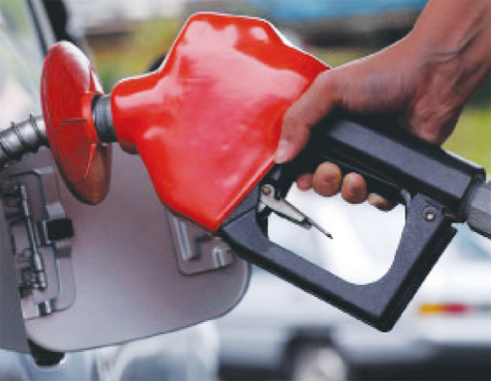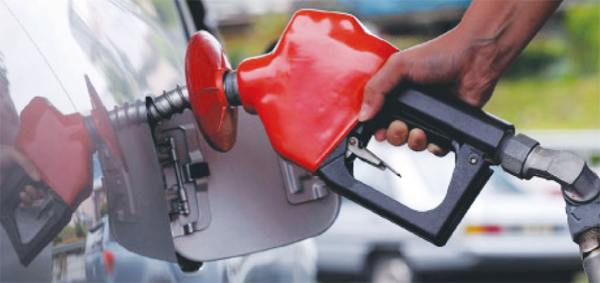
NOW that fuel prices have indeed decreased further, there seems to be an overwhelming sense that the government did the right thing by giving especially the small man and woman some reprieve.
Radio, television and especially social media are now abuzz with showers of praises for the Prime Minister who did in fact assure Saint Lucians that fuel prices were likely to decrease further when he delivered his New Year’s Address on January 18.
The Prime Minister’s address came just six days after the first fuel price adjustments for this year were made. The reductions were as follows: gasolene decreased by $2.20, diesel by $1.93, LPG (20-pound cylinder) by $4.04, LPG (22-pound cylinder) by $4.43, and LPG (100-pound cylinder) by $20.17). At issue was the opposition United Workers Party’s argument that government had inflated the C.I.F. (cost, insurance, freight) of gasolene for example which, according to the UWP, was $8.66. In his address to the nation, the Prime Minister said that figure was $8.60.
And so the verbal back-and-forth between the government and the opposition focused heavily on the prices of gasolene and diesel at the pump, $13.64 and $13.21 per gallon respectively, even though there were also significant declines in the cost of cooking gas. In fact, as a result of the January 12 fuel adjustments, a 20-pound cylinder of LPG went from $36.93 to $32.89 (a $4.04 decrease), a 22-pound cylinder from $41.00 to $36.57 (a $4.43 decrease), and a 100-pound cylinder from $255.94 to $235.77 (a $20.17 decrease). However, government continues to subsidize LPG.
Having followed the debate closely, I got the sense that the opposition was satisfied with the reduction in the cost of cooking gas since their debate centred squarely on gasolene and diesel prices. As he did indicate on January 18, the Prime Minister announced this week that new fuel prices would take effect as of last Monday.
Interestingly, while Dr. Anthony did indicate in his New Year’s Address that the UWP Leader’s suggestion “that they would go back to the old system of adjusting fuel prices every month” might be “tempting” despite volatile fluctuations in oil prices on the world market, it turns out that fuel prices were indeed reduced twice in exactly a one-month period (January 12-February 9).
Further, a press release from the Office of the Prime Minister noted this week that “having reviewed the movement of prices in the last few weeks, government has decided that it makes sense to adopt a flexible approach to deal with the uncertainty that prevails in fuel prices”.
“In this current period of lower fuel prices,” the press release continues, “the government will apply the pass-through mechanism every three weeks to allow consumers to benefit from any further downward movement in prices. However, if prices show an upward movement, the Government will consider reverting to the three-month pass-through mechanism or a variation of it to restore greater stability in prices as it had done so successfully in the past three years.”
For now, Saint Lucians are paying $10.65 per gallon of gasolene and $11.07 per gallon of diesel, a reduction by $3.00 and $2.14 per gallon respectively as of last Monday. Further, a 20-pound cylinder of LPG went from $32.89 to $24.20, a 22-pound cylinder from $36.57 to $27.01 and a 100-pound cylinder from $235.77 to $192.33. These new prices for LPG reflect declines of $8.69, $9.56 and $43.44 as of last Monday.
At long last, Saint Lucians seem satisfied that fuel prices are affordable. There seems to be less “choopsing” when it comes to shelling out less dollars to get more gasolene, diesel and cooking gas. Aside from the minibus driver I tried to strike up a conversation with last Monday night on my way home, the prices seem right for fuel at the moment. When I asked him whether he was satisfied now that fuel prices were decreased further, that minibus driver’s response was nonchalant: “Well, what can you do?” It seems apparent that for many people fighting for things to change trumps applauding when change really does happen. Sometimes people never realize when a battle has ended and they have won.
That brings me to a crucial point about who deserves the credit for this week’s fuel adjustments. While the government had already gone on record in January as saying that fuel prices were expected to decline further given global trends in oil prices, the opposition is adamant that their advocacy for further reduced rates prior to this week was really the Q Tip in the government’s stubborn ears. If this trend continues, don’t be surprised if a Commission of Enquiry is organized to settle that debate. Currently, the tit-for-tat between the two camps has escalated to the point where both sides are taking credit for the decrease in oil prices, forgetting that should OPEC really decide to cut production amidst a glut in the market, we will all be in the high-priced oily mess yet again.
If you asked me, aside from low oil prices globally these days (even though the commodity has gone up a few cents in the past two or so weeks), we should all take comfort in the fact that we can now pay less for fuel. I’m hoping that these rates will encourage more bus drivers to actually fill up their tanks and not face the embarrassment of running short of fuel halfway through their trips. I’m hoping that people will be encouraged to give their neighbour a ride to work every now and then. Nevertheless, I’m hoping that people still see the benefit in carpooling so that any savings made during this low-priced fuel period can be used for something else.
What I’m most happy about, though, is that our manufacturers who are bleeding through their noses with challenges can get some breathing space in which to operate. Normally, I would hope that the cost of groceries at our supermarkets would go down a bit but that might have to take another protest march by another set of people.
Until then, forget the noise about whose credit it is that we are now paying less for gas. At the end of the day, we are really the ones who have to shell out our heard-earned to buy gas – whether it’s cheap or not. The only noise we should be encouraged by should be the extra coins we can play around with in our pockets as a result of the savings. Except, of course, you’re that minibus driver I spoke of earlier who hasn’t yet realized how good a thing the new, adjusted and affordable fuel prices are to us.
















Food prices in the supermarkets are ridiculously high. I live now in Panama and almost all items are 40-50% lower. Electricity is 3 times higher. LPG cylinder cost here US$ 5.-